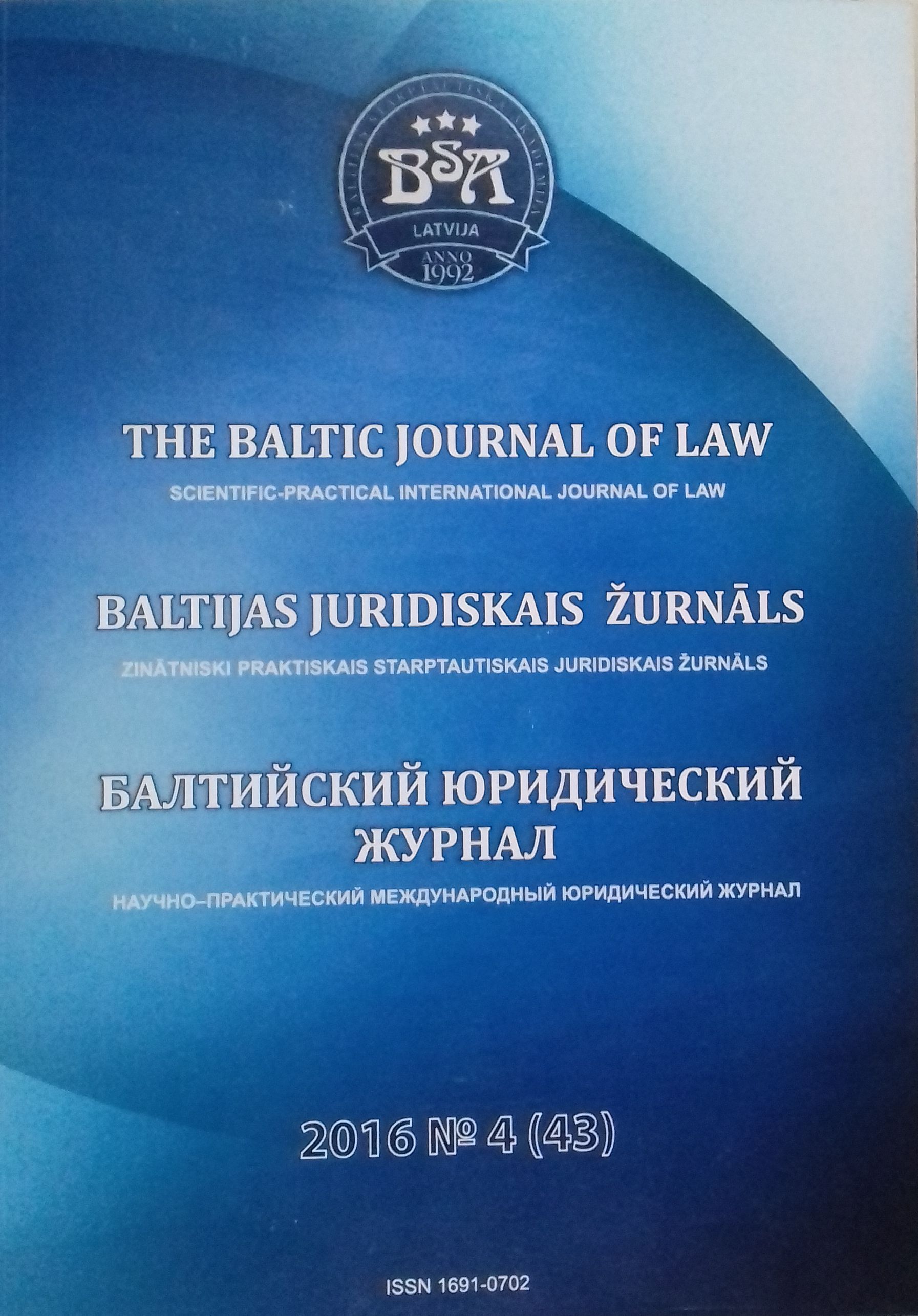Protection of property rights in international law
Protection of property rights in international law
Author(s): Murat SauleSubject(s): Law, Constitution, Jurisprudence, International Law
Published by: Baltijas Starptautiskā akadēmija
Keywords: the right to property; the protection of property rights; international standards; legal regulation;
Summary/Abstract: Protection of property rights is one of the most important priorities of any rule of law. Property right in the modern legal literature is treated as an institution of civil society, a fundamental Institute of private rights and it is declared as universal value. The article deals with the problems of development of the concept of the property rights in the context of its various historical models: elementary, model of branched property, liberal and social-oriented. The conclusion shows that in the process of integration of countries this institution has separated from the framework of national law and derives its consolidation in the international legal instruments. According to the grounded conclusion, in international law axiological concept of property rights has been accepted, which is based on the equality of privately owned entities, distributing the ownership of objects that have traits of economic value and cash flow, regardless of material or nonmaterial nature, the range of the powers of the owner, the existence of an indefinite passive range of media obligations, as well as assignment on the State additional responsibilities for active ensuring of property rights. If the European model of property rights is based on the value approach, the model property of the CIS countries, including Kazakhstan, is based on the proprietary-legal concept of property rights with its traditional triad concept of proprietary rights to possess, use and dispose of property belonging to him. The article analyses the international standards of legal regulation of property rights, which are justified with the modern doctrine of the property rights and the practice of the European Court of human rights: the principle of the rule of law, the principle of balance between public and private interests, the principle of judicial control, the principle of the autonomy of the concept of property rights, the principle of legality, the principle of legitimate aim interference into the property rights, the principle of proportionality of the interference into the property rights according to the aim pursued. The following scientific problem arises: solid and consistent theory of protection of property rights is not developed, methodological approaches for the implementation of its development are not defined in the national and international law. It appears necessary in the international law to develop a universal treaty standards of the property rights - for regulation of issues of property rights, the implementation of its effective protection. In the modern period, one of the actual trends in the doctrine of property law and international jurisprudence is the development of an international legal institution of protection of property rights in the two – pronged way – as an institution of international law and human rights and as a factor in the modernization of the National Institute of the property rights.
Journal: BALTIC JOURNAL OF LAW/ BALTIJAS JURIDISKAIS ŽURNĀLS /БАЛТИЙСКИЙ ЮРИДИЧЕСКИЙ ЖУРНАЛ
- Issue Year: 43/2016
- Issue No: 4
- Page Range: 4-13
- Page Count: 10
- Language: English

